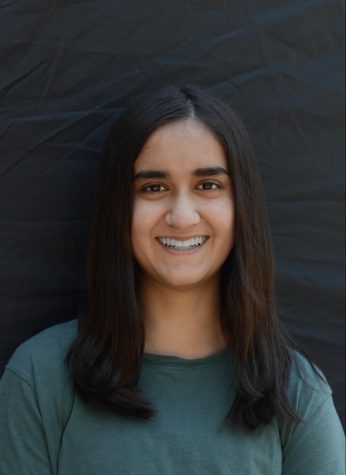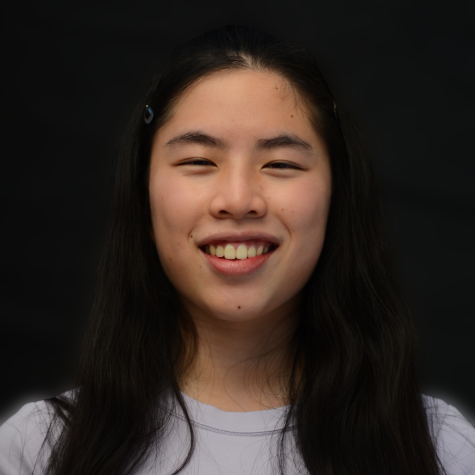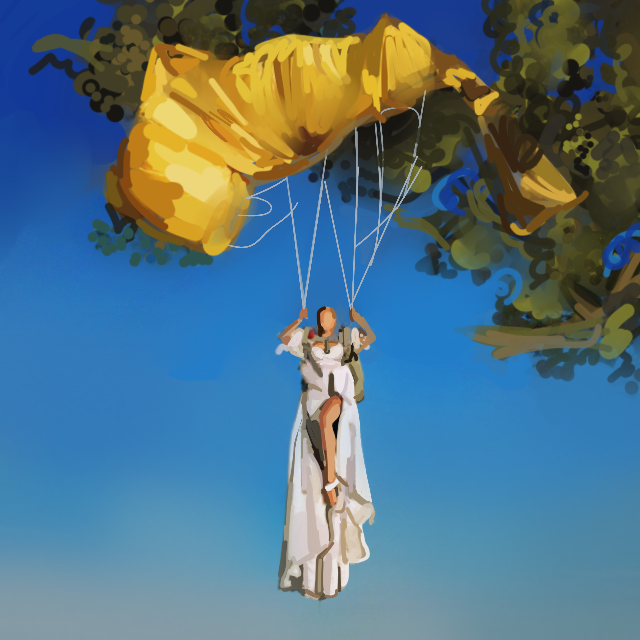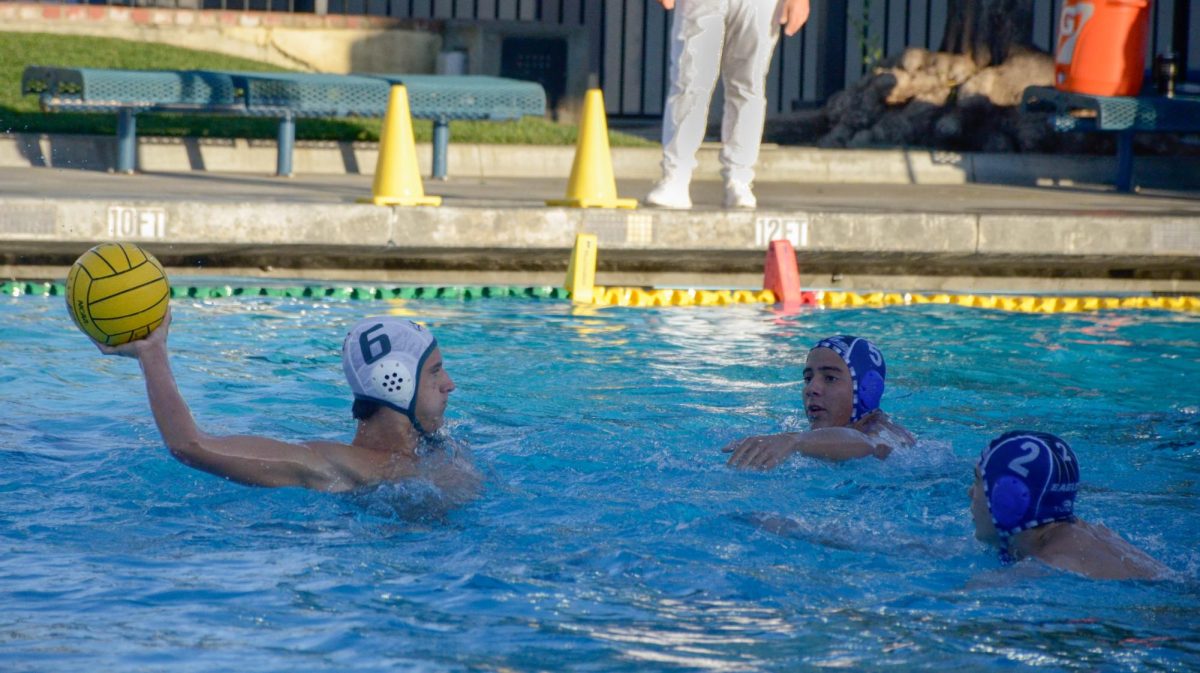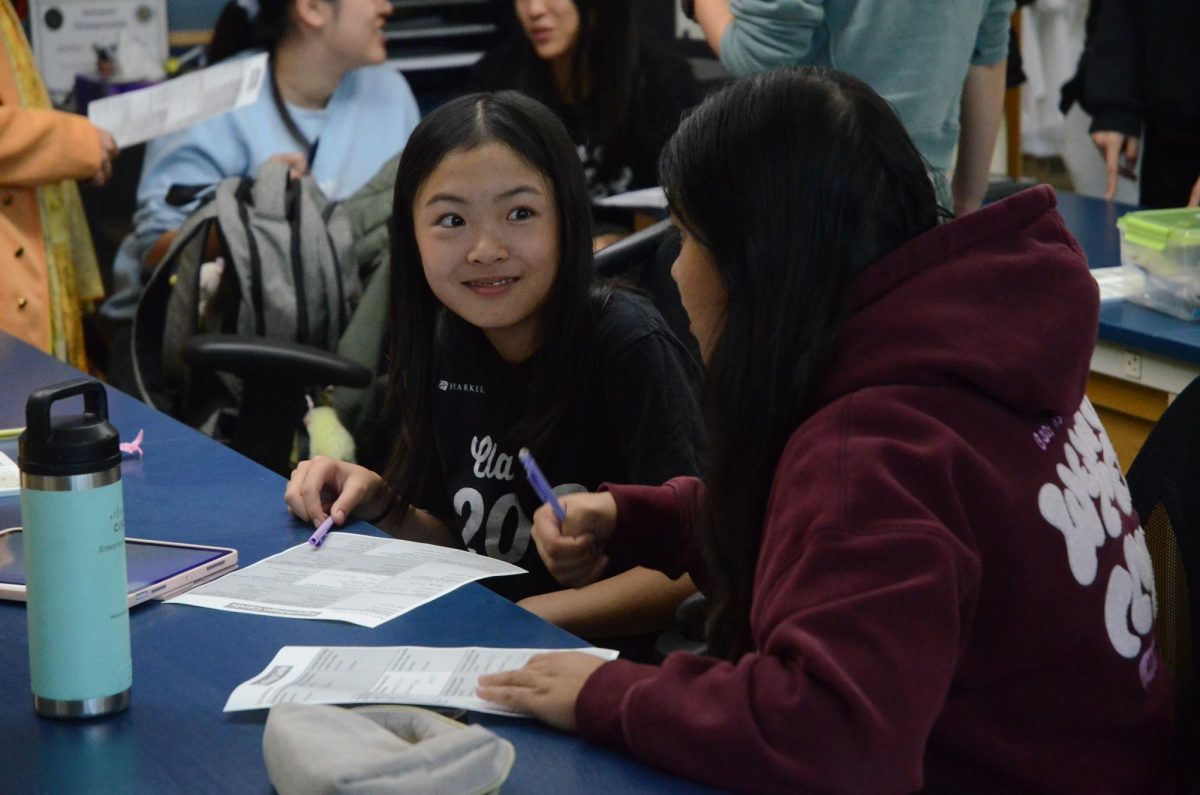New semester electives offer unique opportunities for students in the 2020-21 academic year
Upper school history teacher Mark Janda speaks about African American history during an Introduction to Social Justice class on Feb. 2. “I hope [students] take away agency [from this class],” Janda said. “I hope they take away a sense of how they can participate and change their world.”
February 10, 2021
The upper school offered eight new semester electives this year, providing students with the opportunity to further explore various interests and hobbies in an academic setting. These new courses include Introduction to Social Justice, Honors Modern International Topics, Social Psychology, Arranging and Composing, The Modern Essay, Civics, Conducting Basics and Introduction to Ethnic Studies.
Introduction to Social Justice:
Offered during the second semester, Introduction to Social Justice begins with an overview of social justice terms and concepts and delves into three units: the Black Civil Rights Movement, the Women’s Rights Movement and LGBTQ+ efforts. In addition, students have the opportunity to conduct research based on any social justice movement they would like to explore further, and they pursue research on a topic they choose, which includes possible solutions and connections to social justice. The course concludes with a dive into how social media and other media affects the field of social justice.
“I hope [students] take away agency [from this class]. I hope they take away a sense of how they can participate and change their world,” upper school history teacher Mark Janda, who teaches the course, said. “[This] is not something that they just passively sit by and see happen as though they don’t play a part. I want students to see that their voice, their efforts, their blood, sweat and tears make a difference in the community.”
Social justice movements and topics that will be taught in this new course also have multiple connections to today.
“I’m most interested to learn more about how different social movements have created change, because I think that’s very applicable to the present day and to being informed citizens and changing the world,” Calais Poirson (12), a student enrolled in Social Justice, said. “We’re kids, so our job is to shape the world, and I think that looking back at these social movements that have happened before us will really help all of us learn how to effectively push for the causes we believe in.”
Honors Modern International Topics:
Also offered during the second semester, Honors Modern International Topics begins with a study of epistemology, or the study of knowledge, and students use these principles along with philosophy and various disciplines such as skills they’ve learned in computer science, language arts, and more to analyze current issues.
“My perception was that a lot of our students are embroiled in deep thinking about ongoing issues, from racism to intelligence to questions of consciousness, that are important to their understanding of the world around them, and that a class that addresses the philosophical methodologies that help illuminate and invigorate those discussions would be a class that the student body would be really powerfully interested in,” upper school history and social science teacher Damon Halback, who teaches the class, said.
Honors Modern International Topics is one of the new history and social science electives this year, and its uniqueness comes from the fact that students can study current issues from a philosophical point of view.
“For modern international topics, I’m really excited because I think it’s going to go a lot into the philosophical side of things, which I hadn’t expected to do, but I’m excited for that,” Brian Pinkston (12), a student who is taking the course this semester, said.
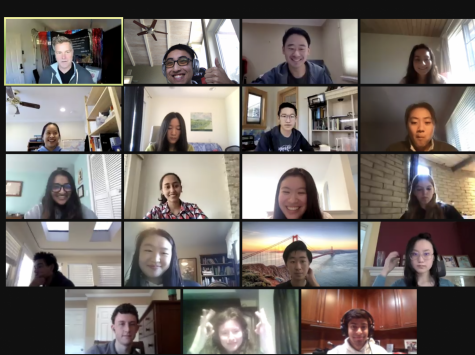
Social Psychology:
Social Psychology, another class offered during the second semester, focuses on how people’s thoughts, behaviors and feelings are impacted by others and covers topics such as social cognition, stereotypes, discrimination, prejudice, social influence, attitudes and changes in attitude, conflict resolution, attraction and relationships.
“Once you’ve studied social psychology, you view the world differently forever because you’re viewing the world from the lens of some of these things, re-evaluating other people’s behavior in terms of some of these concepts, that I think is just life changing,” upper school psychology teacher Dr. Julie Turchin, who teaches the class, said.
A semester course titled Psychology has been offered during the first semester prior to this academic year and the AP Psychology year-long course has been available for seniors, but no course with a specific focus on Social Psychology has been offered until this semester.
“[In] Social Psychology, [I’m excited] to learn how people interact in groups, because we’re living in such a different time and, obviously, being connected with technology, so I think it’ll be interesting to sort of compare those two,” Brian said.
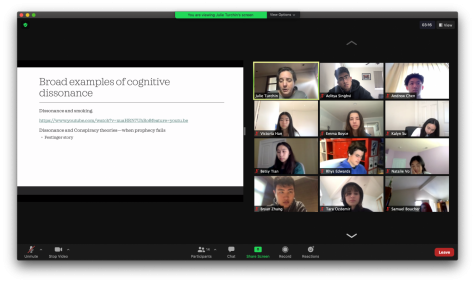
Arranging and Composing:
In the seminar-style class Arranging and Composing, taught by upper school vocal music teacher Susan Nace and only offered second semester this year, students will focus on assignments tailored to their interests and related to both arranging and composing.
“What makes [this class] so exciting is just watching the creativity and the innate musicality of people expressing themselves — for some, for the very first time, and expressing themselves in a medium that they may have participated in and that other people created, but now they are creating what other people are going to perform,” Nace said.
A unique aspect of this class is that it combines both arranging and composing, so students can gain experience with both to further their musical knowledge.
“I’m partially using [this class] to solidify something that I already love, [arranging], and then the other part of it too, [composing], to expand my knowledge and head into a different realm and apply what I know about music to stuff that is entirely my own,” Austin Killam (12) said.
The Modern Essay:
Inspired by the Yale University course titled Reading and Writing the Modern Essay, second semester elective The Modern Essay focuses on teaching students how to write creative nonfiction and various subgenres such as memoirs, personal writing, profiles, cultural critiques and satire writing. Students also write their own creative nonfiction pieces.
“I’m really hopeful that the students will be able to build a trusting community among themselves where they can really support each other’s growth as writers,” upper school English teacher Christopher Hurshman, who is teaching the course, said. “Ultimately, the kind of writing that they’re being trained to do in this class is writing for a public audience. That’s the specific purpose of every kind of writing that we’re going to be doing.”
The unique opportunities and skills that this course offers has stood out to students enrolled in this course.
“[Essays like the ones we study in class are] stuff that everybody reads in magazines, or in newspapers especially, just stories, and so it’s very common,” Kimi Butte (12) said. “It’s very good to know how to analyze them and read them and then pick up on those techniques so you can write your own to get the word out, to be able to communicate the stuff you do and your story and to be able to communicate to others.”
New semester elective courses were also offered during the first semester this year, including Civics, Introduction to Ethnic Studies, and Conducting Basics.
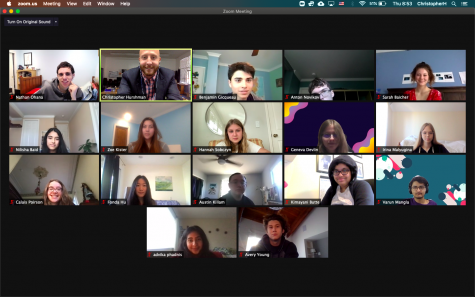
Civics:
Taught by upper school history and government teacher Carol Green, the Civics course focuses on how people can be more active and engaged in the government, and it includes a regional action project in which students chose an issue that was important to them and analyzed how the government played a role. In addition, students engaged in field work and presented to community panels.
“I had students who did everything from phone banking and working text messages for political campaigns,” Green said. “I had students who were working within local community groups to try to implement change on COVID[-19] safety policies for health and wellness in the community, students who were examining what it takes to get speed bumps installed in their neighborhoods, and students who were doing community service.”
In contrast to the AP U.S. Government and Politics class, the Civics course focused more on local and state government, as well as on citizen engagement and project-based learning.
“Civics examin[ed] local government, which is something I may want to go into. We researched local issues, stuff that affects specifically the Bay Area, but then also examined how California governance works, so sort of [the] relation between city and municipal and state government,” Brian said.
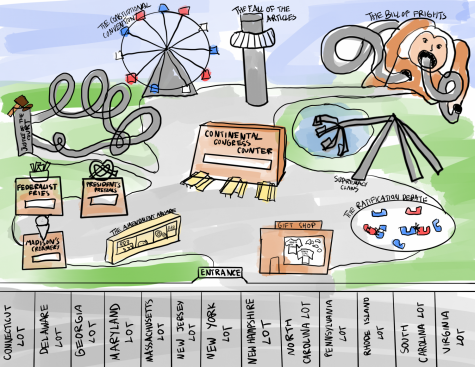
Conducting Basics:
Also taught by Nace, Conducting Basics was a new music elective during the first semester as well, focusing on gesture, anatomy, score study, body movement, instrumental conducting and choral conducting.
“[Conducting has] my students think [in] a completely different way about music because most students’ experience with music is more performative in terms of performing it, or just analyzing it in theory; with this, there’s more philosophy, there’s more body involvement,” Nace said. “And that makes it really exciting.”
Introduction to Ethnic Studies:
The upper school history and social science department also offered Introduction to Ethnic Studies during the first semester, and the curriculum included three units: Asian-American Studies, African-American Studies and Latinx-American Studies, as well as a unit on terms and methodology and a concluding project on self-identity.
“[Classes like Ethnic Studies and Social Justice] tap into students, passions, and their emotions. It’s a way to connect intellectual learning with emotional feeling that, very often, we miss,” Janda, who also taught Ethnic Studies, said.
The course also included Harkness discussions that concluded each unit, and in these discussions, students could decide what they wanted to talk about and in which direction the conversation went.
“I feel like the discussions that we engaged in were very interesting, and they really brought up these experiences that we’re not comfortable talking about them, usually,” Elizabeth Chen (12) said. “And even though they might be a huge part of our identity and how we think and our experiences, they just don’t get brought up, so hearing about people’s experiences and what they go through was a part that interested me.”
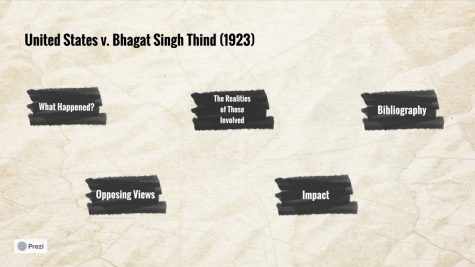
In addition to these semester electives, the upper school offered two year-long classes, Econometrics and Introduction to Journalism, for the first time this year. Through the variety of new courses offered this year, students gained the opportunity to pursue a plethora of subjects, ranging from the performing arts to history and philosophy.
“These are the classes that actually bring humanities and sort of complete that holistic education,” Brian said. “You have a bunch of these STEM courses, cool. You have kids that can learn a bunch of facts, but how can they relate them and apply that to the real world? And that’s sort of what you get with these humanities courses, is an understanding of that application. So that’s why I feel like they’re really necessary.”


















![“[Building nerf blasters] became this outlet of creativity for me that hasn't been matched by anything else. The process [of] making a build complete to your desire is such a painstakingly difficult process, but I've had to learn from [the skills needed from] soldering to proper painting. There's so many different options for everything, if you think about it, it exists. The best part is [that] if it doesn't exist, you can build it yourself," Ishaan Parate said.](https://harkeraquila.com/wp-content/uploads/2022/08/DSC_8149-900x604.jpg)




![“When I came into high school, I was ready to be a follower. But DECA was a game changer for me. It helped me overcome my fear of public speaking, and it's played such a major role in who I've become today. To be able to successfully lead a chapter of 150 students, an officer team and be one of the upperclassmen I once really admired is something I'm [really] proud of,” Anvitha Tummala ('21) said.](https://harkeraquila.com/wp-content/uploads/2021/07/Screen-Shot-2021-07-25-at-9.50.05-AM-900x594.png)







![“I think getting up in the morning and having a sense of purpose [is exciting]. I think without a certain amount of drive, life is kind of obsolete and mundane, and I think having that every single day is what makes each day unique and kind of makes life exciting,” Neymika Jain (12) said.](https://harkeraquila.com/wp-content/uploads/2017/06/Screen-Shot-2017-06-03-at-4.54.16-PM.png)








![“My slogan is ‘slow feet, don’t eat, and I’m hungry.’ You need to run fast to get where you are–you aren't going to get those championships if you aren't fast,” Angel Cervantes (12) said. “I want to do well in school on my tests and in track and win championships for my team. I live by that, [and] I can do that anywhere: in the classroom or on the field.”](https://harkeraquila.com/wp-content/uploads/2018/06/DSC5146-900x601.jpg)
![“[Volleyball has] taught me how to fall correctly, and another thing it taught is that you don’t have to be the best at something to be good at it. If you just hit the ball in a smart way, then it still scores points and you’re good at it. You could be a background player and still make a much bigger impact on the team than you would think,” Anya Gert (’20) said.](https://harkeraquila.com/wp-content/uploads/2020/06/AnnaGert_JinTuan_HoHPhotoEdited-600x900.jpeg)

![“I'm not nearly there yet, but [my confidence has] definitely been getting better since I was pretty shy and timid coming into Harker my freshman year. I know that there's a lot of people that are really confident in what they do, and I really admire them. Everyone's so driven and that has really pushed me to kind of try to find my own place in high school and be more confident,” Alyssa Huang (’20) said.](https://harkeraquila.com/wp-content/uploads/2020/06/AlyssaHuang_EmilyChen_HoHPhoto-900x749.jpeg)



![Upper school history teacher Mark Janda speaks about African American history during an Introduction to Social Justice class on Feb. 2. "I hope [students] take away agency [from this class]," Janda said. "I hope they take away a sense of how they can participate and change their world."](https://harkeraquila.com/wp-content/uploads/2021/02/Screen-Shot-2021-02-02-at-1.04.44-PM-1-900x443.png)
